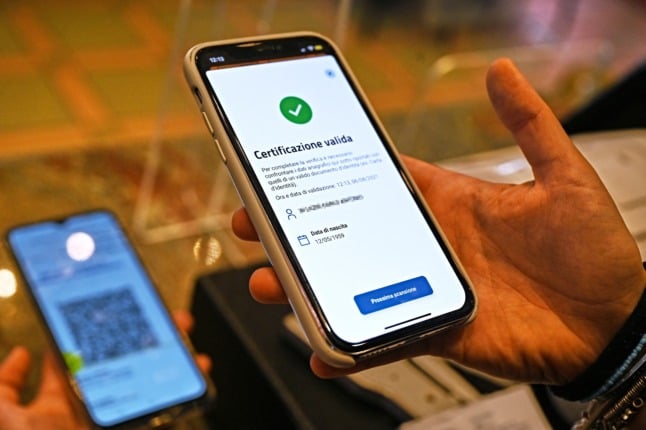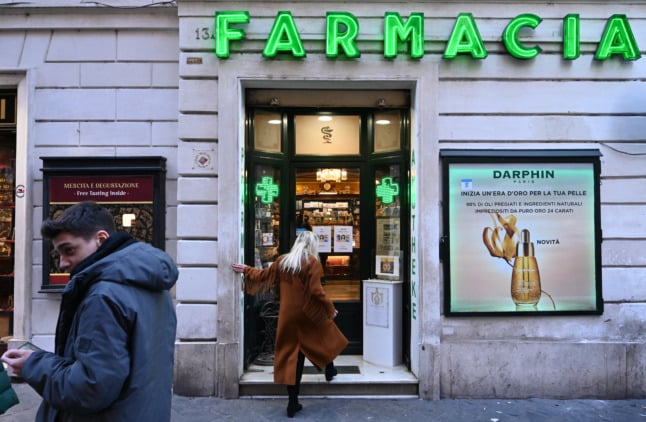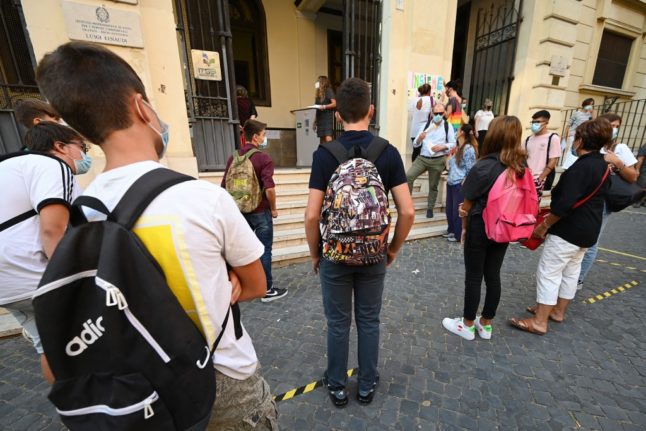Question: I recently recovered from Covid-19 and I have read that I’ll need to show proof of this when travelling to Italy. What kind of proof do I need and where is this needed?
Since January 10th, Italy has required proof of vaccination to access most venues and services in the country, including all public transport, hotels and restaurants.
Under certain conditions, a Covid-19 recovery certificate can be used in place of a vaccination certificate – but its uses are strictly prescribed.
If you are a resident in Italy and have recovered from Covid-19, your healthcare provider in Italy will log your recovery information with the health ministry and this will be used to automatically generate a green pass which can be downloaded and scanned, according to the health ministry’s green pass website.
If you are visiting or returning to Italy and you have recovered from Covid-19 in another country, things are less straightforward but you may also able to use your recovery certificate in Italy.
Here are the circumstances under which visitors can use a Covid-19 recovery certificate in Italy, and the information the document should contain:
What can I use a Covid-19 recovery certificate for in Italy?
For entry to Italy: Under the current rules for international arrivals, visitors arriving in Italy from anywhere within the EU or Schengen or area, as well as the US, Canada or Japan, can use a valid Covid-19 recovery certificate in lieu of a vaccination certificate to enter the country.
Travellers coming from the US, Canada or Japan must additionally provide a negative result from a recent rapid antigen or PRC test to avoid a five-day quarantine on entering Italy.
READ ALSO: What are the latest rules for travel to Italy from the US and Canada?
Within Italy: All foreign visitors can use their valid recovery certificate to access venues and services which currently require a vaccine pass, such as hotels, restaurants, public transport, ski facilities, museums and cultural sites, provided it meets the government’s criteria.
A valid recovery certificate may also be used to access spaces in Italy that now require either proof of vaccination, recovery or a recent negative Covid test: this includes most non-essential shops, post offices and banks.
A Covid-19 recovery certificate is considered valid in Italy for 180 days (six months) from the date on which your Covid infection was first officially recorded.
What information should my recovery certificate contain?
The Italian health ministry stated on July 30th, 2021, that a recovery certificate should contain the following:
- The holder’s name, surname, and date of birth.
- “information about the holder’s past SARS-CoV-2 infection, following a positive test” (exactly what information isn’t specified, but as the certificate must be issued by a health authority, one or two lines from the authority summarising the nature of the holder’s past infection is likely to be what’s required).
- The date of the holder’s first positive Covid test (the certificate is valid for 180 days from this date).
- The name of the State and the health authority that has issued the certificate.
The ministry states that all recovery certificates issued in a foreign language should be accompanied by a sworn translation (presumably to Italian).
READ ALSO: How Italy’s international travel rules change in February
To be considered valid, your Covid-19 recovery certificate must have been issued by an official healthcare provider.
If you believe you had Covid-19 but never confirmed it, or confirmed it only with a home test, you will not be able to demonstrate to the satisfaction of the Italian authorities that you have recovered from Covid.

Is an expired recovery certificate useless then?
Far from it. Following a new decree that came into force in Italy on February 5th, an expired recovery certificate can still be used to access all venues and services that require a valid recovery or vaccination certificate, if used in combination with an additional time-limited certificate that can be obtained via a negative Covid test.
The test must be administered by a certified provider in Italy (e.g., a pharmacy), to whom you will need to provide your full name and proof of ID. Once you receive your negative test result, you will be issued with a certificate that takes the form of a QR code that can be easily scanned by public sector and service industry workers.
READ ALSO: How Italy has updated its Covid health pass rules for visitors
This short-term certificate obtained through a negative test result is known as a ‘basic green pass’ (green pass base, pronounced ‘green pass BAH-zay’, in Italian). The basic green pass will expire 48 hours after receiving a negative rapid test result, or 72 hours after a negative PCR test.
You will need to show both your basic green pass QR code and your expired recovery certificate in order to enter spaces that otherwise require a valid recovery or vaccine certificate.
It’s possible you may experience pushback from venue managers responsible for enforcing the restrictions who sometimes struggle to keep up to speed with Italy’s rapid rule changes. If this happens, try showing them this government press release which summarises the new rules.
Does Italy accept antibody tests as proof of recovery?
The Italian government has not indicated it will accept antibody tests, which involve analysing your blood for antibodies to Covid-19 that indicate you have had an immune response to the disease, as proof you have recovered.
We don’t yet know for sure how long antibodies can remain in the body or how reliably they indicate immunity.



 Please whitelist us to continue reading.
Please whitelist us to continue reading.
Member comments